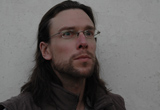 I am willing it not to snow anymore. It has snowed for the past two days as I walked to the settlement of Simikot. There is an airstrip here, but the flights out of this remote north west corner of Nepal are even more weather dependent than our donkeys have been and I am keen to make it home for Christmas.
I am willing it not to snow anymore. It has snowed for the past two days as I walked to the settlement of Simikot. There is an airstrip here, but the flights out of this remote north west corner of Nepal are even more weather dependent than our donkeys have been and I am keen to make it home for Christmas.
I have been working as a volunteer with PHASE (Practical Help Achieving Self Empowerment). This UK-Nepali charity was founded on the belief that even the poorest and most distant communities have a right to basic health and education services. It seeks to provide healthcare in areas of Nepal where none would otherwise exist, such as here in Humla District.
Living and working alongside the health workers, who themselves live among the communities which they serve, has meant that the patients’ problems have become my problems. Not only have they presented their clinical issues, but to some extent, in some small way, and for a brief period, I have shared in the health challenges faced by these people: the smoke-filled cooking areas that exacerbate respiratory conditions; the cold (often frozen) communal tap that inhibits cleanliness; the donkey turd and flies that impair food hygiene; the seasonal subsistence diet that is limited to what can be produced locally (mostly millet, rice, lentils, and potatoes—fruit is a rare luxury). To say nothing of the absent electricity, internet, and phone coverage. I have become far more empathetic toward the middle aged men who look 20 years older and complain of back ache from cutting and carrying firewood; and toward the women who bear a rancid smell of dirt and sweat as they describe gastritis; and toward the underweight children with URTIs whose dirty faces are crusted with sores and snot.
I imagine my own face is grubby too: I have not seen it, nor that of any other foreigner, since leaving Kathmandu one month ago. During that time, the PHASE health workers and I have walked well over a hundred miles and seen several hundred patients. The health workers remain at their health posts as I leave. While I look forward to going home, to Christmas with family and friends, I look back on an experience that has been challenging and rewarding, one that has reminded me of the value of primary care, and of the potential for a small but well-considered and highly committed charity to be extremely effective in giving people agency in their health and healthcare decision making (social determinants notwithstanding).
PHASE places experienced nurse-midwives in some of Nepal’s most remote health posts, supplies them regularly with drugs and equipment, gives them evidence-based guidelines and ensures that they receive periodic mentoring and tutoring. It is as mentor/tutor that I have been employed. The premise of PHASE’s GP placements is that the transferability of primary care skills enables trained GPs like myself to contribute valuably to the quality of healthcare provision by giving teaching, supervision, feedback, and support, even during relatively short visits. The nurse-midwives in the clinics have had 18 months training before commencing work, yet, in the absence of any other healthcare providers they act as rural GPs; taking histories, examining, diagnosing, and treating the ailments of 50 patients most days. They have no investigations available to them and the nearest referral centre is a two day walk plus plane ride away. Good clinical skills are essential and I have been doing my best to enhance these during my time here.
The methods and motivation of the healthworkers have been tremendously impressive. I accompanied Anjana, Indira, and Kalpana as they set off from Kathmandu with the boxes of medicines that would be required for their next six months work in Humla. The tortuous 36 hour bus journey was followed by a day’s tractor ride before the medications were loaded onto donkeys and we embarked upon a three day hike to the first health post. Humla district has no roads to it or within it: it feels a long way from anywhere. While I relished the autumn landscape of cool rivers, dusty trails, goat herders, and soaring vultures, I was conscious that each day took us further from the luxuries and certainties of the 21st century. Yet, thanks to PHASE, this remoteness is no longer a barrier to healthcare access.
For more information, visit www.phaseworldwide.org, or contact Dr Gerda Pohl, medical coordinator: gerda.pohl@phaseworldwide.org
Andrew Moscrop is a general practitioner.